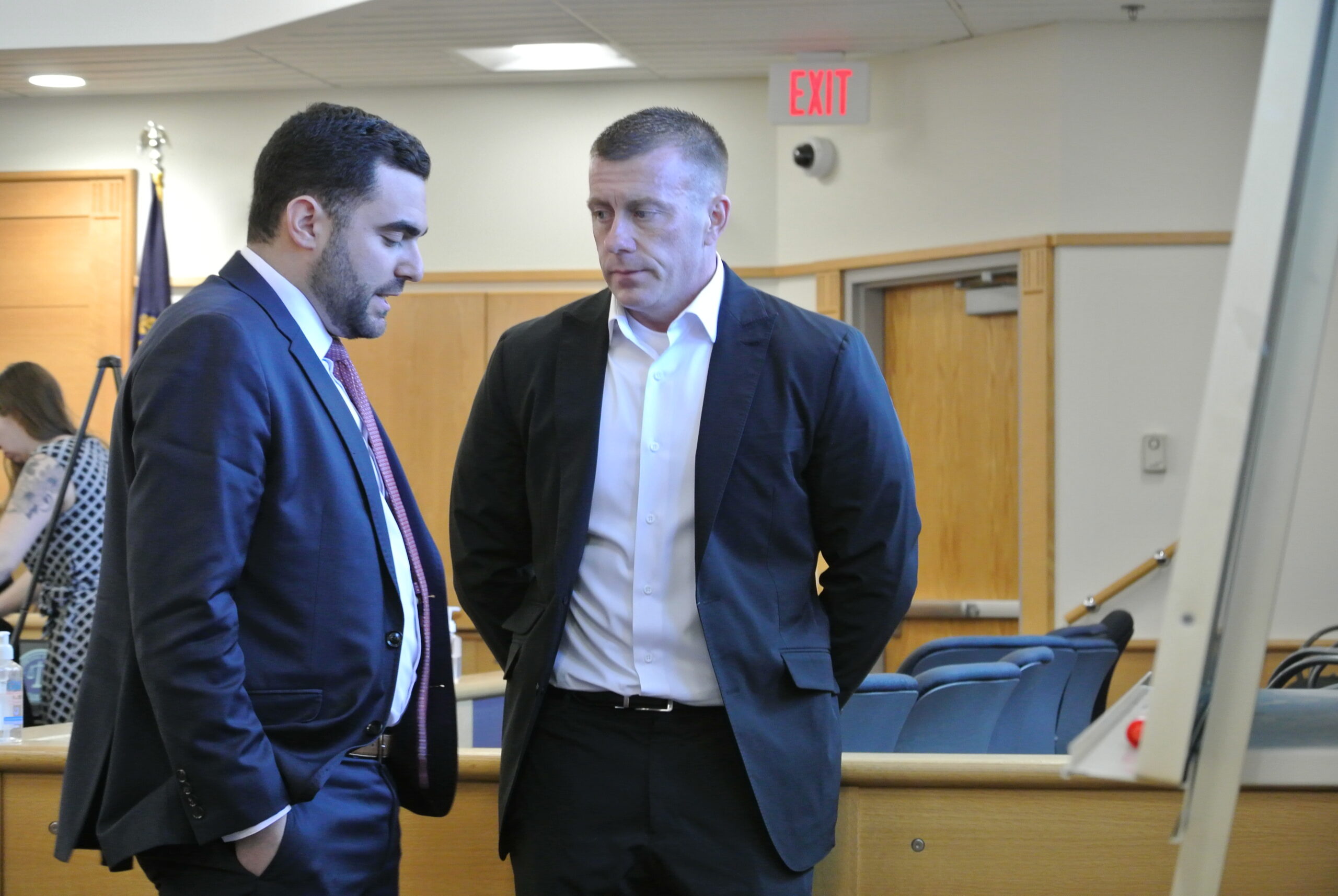No NHPR Malice Found in Spofford Case

There is no evidence that NHPR reporters acted with malice when reporting on sexual misconduct allegations against former Granite Recovery Centers CEO Eric Spofford.
Rockingham Superior Court Judge Daniel St. Hilaire ruled Spofford’s latest bid to find evidence to support his defamation lawsuit against the public broadcaster failed.
St. Hilaire came to his Dec. 13 decision after reviewing thousands of documents provided by NHPR detailing the station’s reporting on the stories.
“Having now completed this review, the court concludes that the documents produced contain no evidence that any of the NHPR defendants acted with actual malice,” St. Hilaire wrote.
Spofford’s attorney, Michael Strauss, did not respond to a request for comment.
St. Hilaire dismissed Spofford’s lawsuit this year, finding he had not provided any evidence in his 300-plus page complaint to back his defamation claims. However, Spofford was allowed to refile the complaint, presuming he could produce evidence of malice.
That opened the door for Spofford to seek reporting notes and interview transcripts in a search for evidence against NHPR. Spofford’s search came up empty, according to St. Hilaire. The judge looked at all the documents “in camera,” outside the public court procedures.
Spofford claimed NHPR’s Lauren Chooljian targeted him with false stories that he sexually harassed a former client and sexually assaulted at least two former employees because he was a prominent Republican. According to documents Spofford’s legal team filed in court, Chooljian knowingly relied on sketchy and biased sources to put together the damning reports, demonstrating reckless disregard for the truth, one of the necessary elements for Spofford’s case.
But. St. Hilaire wrote there was no evidence to support Spofford’s claims that Chooljian turned a blind eye to biased sources feeding her lies.
“The court has found no indication that Chooljian or other NHPR Defendants possessed knowledge that their reporting was false, acted with reckless disregard of its falsity, or entertained doubts as to the truth of their publication,” St. Hilaire wrote.
In fact, according to St. Hilaire, the documents he reviewed showed Chooljian and other NHPR reporters focused on getting the facts.
“In short, the in-camera review documents reflect professional and diligent reporting and are totally devoid of any evidence that the NHPR defendants had reason to doubt the truth of their publication. While Spofford maintains that the accusations against him are baseless and entirely fabricated, the in-camera review documents contain absolutely no evidence of falsity. On this record, Spofford has no viable basis to sue the NHPR defendants or their sources,” St. Hilaire wrote.
St. Hilaire is again giving Spofford 30 days to bring an amended complaint that contains evidence to back his defamation case but wrote that based on the documents he reviewed, “any amendment will likely be futile.”
Outside the lawsuit, Spofford has been linked to one of the suspects in the vandalism targeting Chooljian and other NHPR reporters. Spofford is not accused of taking part in the vandalism conspiracy.
Eric Labarge, 46, was charged in September for allegedly conspiring to vandalize the homes of Chooljian, NHPR journalist Dan Barrick, and their families. Larbarge allegedly coordinated the vandalism with codefendants Tucker Cockerline, 32, of Salem, Michael Waselchuck, 35, of Seabrook, and Keenan Saniatan, 36, of Nashua.
Labarge, himself the owner of several recovery centers, is described by federal prosecutors as Spofford’s “close personal associate.”



